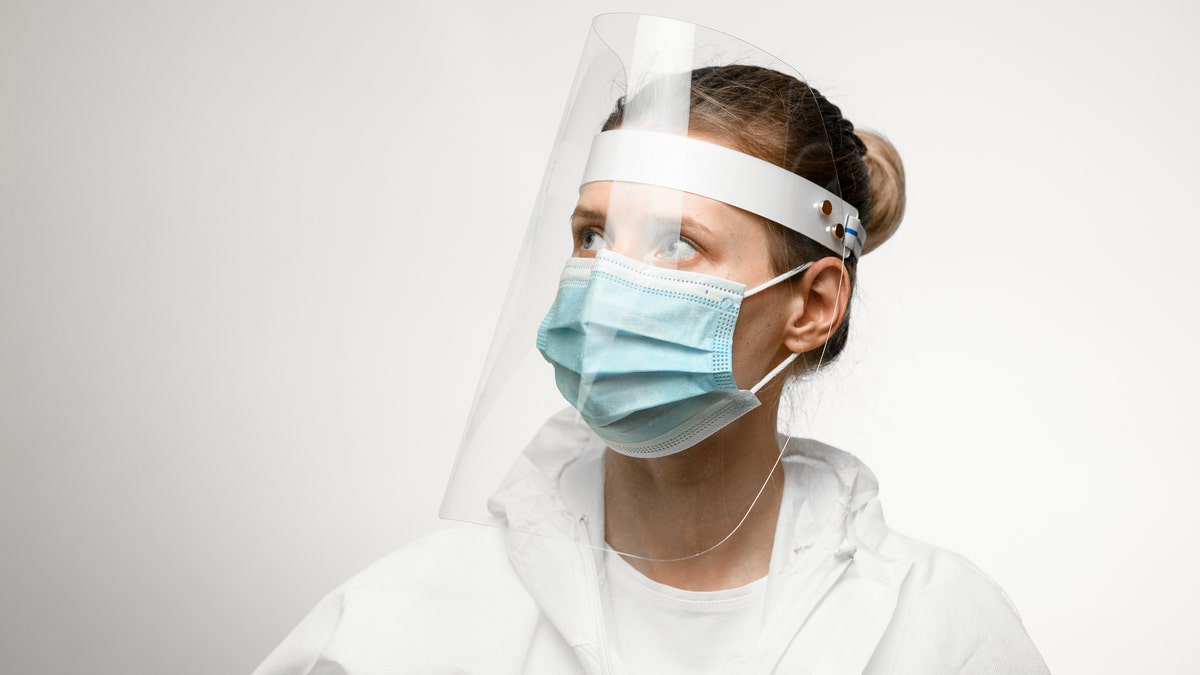Fox News Flash top headlines for July 28
Fox News Flash top headlines are here. Check out what's clicking on Foxnews.com.
Amid the ongoing coronavirus pandemic, which is better, a face mask or face shield?
In many states, wearing a face mask or face shield is required while in public in an effort to prevent the spread of COVID-19. Though safety is on many minds, many also struggle to don the cloth or surgical masks in public due to complaints of muffled voices, foggy glasses or being too sweaty. Instead, some prefer to use a face shield. But which is better to wear in the community? The curved piece of plastic attached to a headband, or a mask that conceals your nose and mouth?
BLOOD TEST IDENTIFIES WHICH CORONAVIRUS PATIENTS MAY BE HELPED OR HARMED BY STEROID TREATMENT
Proponents of the face shield told Fox News they like its reusability and the fact it's easily cleaned with soap and water. Some health experts say the shield prevents a person from touching their face, which ultimately helps limit exposure to the virus. The face shield’s transparency makes communication easier for those who are hard of hearing and need to read lips as well. In fact, some medical experts say the shield also provides a physical reminder to others to social distance when in the community, according to an article in AARP.
While the public debates which facial covering is better, so do professionals in the medical field.
“Face shields appear to significantly reduce the amount of inhalation exposure to influenza virus, another droplet-spread respiratory virus. In a simulation study, face shields were shown to reduce immediate viral exposure by 96 percent when worn by a simulated health care worker within 18 inches of a cough," reads an opinion piece in JAMA by Dr. Eli Perencevich, a professor of internal medicine and epidemiology at the University of Iowa Carver College of Medicine, and his colleagues.

While the public debates which facial covering is better, so do professionals in the medical field. (iStock)
But many physicians also told Fox News that they recommend face masks under the face shield for community use, saying the shield does not provide adequate protection with airborne particles.
“The only time a person would need to wear a face shield with a face mask is if you are in close proximity to people who are not wearing a mask at all, as the shield will help protect your eyes. Shields are not as effective or protective alone, as the virus can still go around the shield and get into your mouth and nose. A face shield protects the eyes from the virus," Dr. Hugh Cassiere, director of critical care at Northwell Health’s North Shore University Hospital, told Fox News.
“Face shields do not fully protect you from infection, whereas masks are more effective,” Cassiere added.
Meanwhile, Dr. Fred Davis of Northwell Health LIJ on Long Island, said face shields can be used as an added layer of protection: “in public, a face shield can offer additional protection than just a mask alone."
“It is not known if face shields provide any benefit as source control to protect others from the spray of respiratory particles," the Centers for Disease Control and Prevention (CDC) states on its website. "CDC does not recommend [the] use of face shields for normal everyday activities or as a substitute for cloth face coverings."
HOMEMADE CORONAVIRUS FACE MASKS SHOULD BE TWO OR THREE LAYERS TO STOP SPREAD OF VIRUS, STUDY FINDS
However, "If face shields are used without a mask, they should wrap around the sides of the wearer’s face and extend to below the chin. Disposable face shields should only be worn for a single-use. Reusable face shields should be cleaned and disinfected after each use," the federal health agency adds.
As for the use of face masks or face shields on infants, the CDC does not recommend either.
"Cloth face coverings should not be worn by children younger than 2 years old. Plastic face shields for newborns and infants are NOT recommended," per the CDC.









































